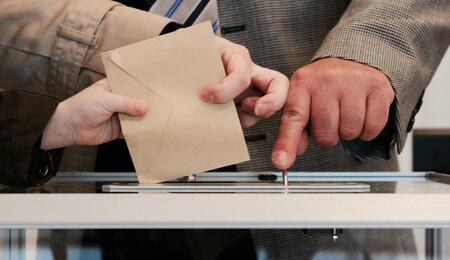New Jersey due to Vote on Legalizing Cannabis

After two years of failed attempts to pass the bill to fully legalize cannabis, New Jersey lawmakers have agreed to let the voters decide on Nov. 3 as a part of the first mostly vote by mail election and answer the question "Do you approve amending the Constitution to legalize a controlled form of marijuana called 'cannabis'?" Polls suggest that over 60% of voters will vote in favor of cannabis legalization.
There is no in-person voting in the state and registered voters in New Jersey will receive ballots this month that they can either drop off at specific sites or send by mail. If approved, New Jersey will become the 12th state to allow adults aged 21 and older to use legal cannabis and the state to establish a regulated market to distribute, grow, and sell the drug. If voters give the green light, the Garden state - bordered by states that have not legalized cannabis, Pennsylvania and New York - could easily monopolize the cannabis market and become the biggest in the country. New Jersey already boasts a booming medical cannabis market, with the lines of customers frequently expanding at the state's nine dispensaries which offer a limited selection of the drug, going for about $400 to $500 an ounce.
The world's largest marijuana company Curaleaf operates a medicinal cannabis dispensary in South Jersey and has plans to open a second outlet in the state. The company's president Joe Bayern told New York Times, Curaleaf is building a 100,000-square-foot grow facility in Winslow, N.J., with a possibility to turn into the adult-use market if the ballot measure passes.
Legalization of cannabis for recreational use is likely to become a reality, as a poll conducted by Monmouth University in April found that 61% of New Jersey voters intend to say 'yes' on November's ballot question, and 64% of respondents said they supported legalizing the possession of marijuana for personal use. Legalizing marijuana for recreational use would mean new industry jobs, which are especially enticing at a time when the COVID-19 pandemic has left thousands without a job and has led to high levels of unemployment in the state. NJ Can 2020, a coalition group of organizations including the ACLU of New Jersey, Drug Policy Action, New Jersey CannaBusiness Association that supports legalization is planning digital ads in support of the question.
The Social Welfare group argues that passing of the ballot measure will create jobs, bring in tax revenue, and will right a social injustice as right now there are visible disparities in pot arrests, with Black residents being arrested three times more than white residents in the state. "New Jersey has a pivotal opportunity to advance racial justice and move the state forward through marijuana legalization this November," said Amol Sinha, the executive director of the New Jersey ACLU. Axel Owen, campaign manager for NJ Can 2020, told New York Times that the big thing that's changed is people having a discussion about the role of policing.
According to an estimation done by a research arm of the State Legislature, once the market is established, taxes on sales of recreational-use legal cannabis could generate roughly $126 million a year. The passing of the ballot measure could make legal cannabis subject to the state's 6.625% sales tax. New Jersey lawmakers would be given the permission to authorize local governments to collect an additional 2% sales tax on marijuana. Apart from New Jersey, voters in three other states including Montana, South Dakota, and Arizona will also decide on whether to legalize cannabis for recreational use. If the public approves the measure, it isn't known how quickly the program could get up and running. In addition to the need for more legislation, it would take time to develop the market before sales could begin.









